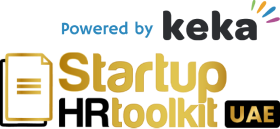Human Resource Management (HRM): Definitive Guide
This is a complete guide to everything you need to know about human resource management? Human resource is one of the most important departments in growing companies and maintaining employees. However, what do they exactly do? If you are confused we’ve discussed everything about HR management from what it is and its key responsibilities to their importance.
What is Human Resource Management?
Managing human resources is one of the most important parts of running a business and its day-to-day activities.
In technical terms, human resources are the people that work for the organization or company. The human resource department is created to manage these individuals. The term was first coined in the 1960s and has become more and more important since then.
HRM or Human Resource Management is simply the practice of managing people to be more productive and improve their performance. The department’s main purpose is to optimize the company’s performance by better management of these human resources.
Why would you require a department to do that? Let us give you a simple example of this
Are you seeing a fall in your employee productivity since your employees have started working from home? That might be because your employees are unengaged with the company. A simple fix for this will be to have group calls or spend time on video calls every week. This will help your employees feel connected to the company and its mission again. Therefore, will push them to be more productive.
HR management is the process of recruiting, selecting, training, and managing employees. While making sure that the employer complies with the laws of the state.
Human resource management is an umbrella term used to describe the management and development of the employee.
What is Importance of Human Resource Management?
1. To maintain the quality of work-life
quality of work-lifeThe quality of life that employees lead within the company is an important factor that affects their productivity and loyalty to the company. The relationship between the employees and the management truly affect the employee’s work environment.
The employee’s physical and psychological wellbeing in the workplace is important. The HRM department must ensure a suitable work environment. The employees can also be given autonomy, job recognition, rewards, and more to create a better environment.
2. Produce Adaptable Employees
Employees shouldn’t be hired simply based on their resumes but also based on their personalities. Whether they are the right cultural fit for the company or not. Furthermore, the right training and development programs should be conducted to keep the employee skills up to date.
These are all responsibilities of the Human resource management department.
3. Match & Predict Changes in Human Resource
Human resource management must predict changes and the demands of human resources in an organization. They maintain the right number of human resources and make sure that activities like recruitment, management, and the needed balance are maintained. This helps organizations stay efficient and functioning.
4. To Retain Employees & Motivate Them to Accomplish The Company’s Goal
Maintaining the necessary employees and encouraging them to accomplish the company’s goal is an important part of the HR manager’s job. They manage compensations, rewards, and conduct activities to maintain motivation among the employees. This helps them retain the top talents and motivates other employees to work towards the organization’s goals.
To create a community and a feeling of belongingness
Research has found that employees are much more likely to stay in an organization where they have agreeable co-workers. Every organization requires communities of people to make sure that every employee feels valued. This will create a sense of job and pride to work in an organization.
5. To Nip Conflicts Early on
The Human resource department is usually the first to know about the conflicts in any team. They, therefore, have the opportunity to solve those conflicts before it reaches higher-level management. With an ear to the ground, they are able to do it well.
6. To Award The Right Employee of the month
Since the human resource department is connected to the employees, they are the right choice to recognize and award the right employees. This will boost the employee’s motivation and will push their productivity even further.
7. Creating a Healthy Work Culture
The management cannot be focused on the work culture of an organization. However, it is important to be maintained. The HR managers contribute a lot in setting up healthy work cultures and working environment for the employees. This in turn translates into a higher productivity rate.
8. To Develop a Healthy Corporate Image
Every company requires a healthy public image to remain in the market. Companies that truly treat their employees well and have decent facilities are spoken well of. The HR department is also responsible for ensuring that sensitive information is kept safe and sound.
Primary Responsibilities of HRM
Let us now understand the primary responsibilities of HRM. What is included and what is the importance of human resource management in that space.
HR management’s priority is the development of both the organization and the employees. This means, their responsibilities do not end with simply managing individuals but also securing the right individuals, developing the talents, managing compliances, and solving conflicts.
Few of the primary responsibilities in human resource management are – Job analysis, recruitment, management, compliance, optimizing the workforce, motivating the employees, development of the workforce, strategic planning, and management. We’ve divided their responsibilities into seven basic parts.
1. Recruitment & Selection
The recruitment and selection responsibility is one of the more visible parts of the HR department’s responsibility. The team manages everything from filing for new hires and selecting the right ones for the organization. They create job descriptions, conduct interviews, set up tests, and manage the handover to every employee. Having appropriate people in the right company is extremely important as it allows the company to grow further.
Furthermore, it is a difficult and exhaustive task to select several candidates from a huge number of applicants. For this, Human resource management uses different instruments like interviews, direct assessments, reference checks, and more.
2. Performance Management
Managing an employee’s performance is one of the most basic and important functions of the HR department. It involves building effective work environments for employees and helping them overcome the challenges that they face. Performance management boosts the employee’s productivity. It involves taking feedback from employees and reviewing them.
Companies usually have annual performance reviews where they go through every employee’s annual performance to help them get better and address the issues that they might be facing. However, we can see a recent shift from annual performance reviews to monthly performance reviews. Which solve the problems quickly and motivate the employees more.
Having good performance management is crucial for any organization to survive and thrive. It motivates employees and pushes them to give their best.
Once employees are on board, performance management becomes important. Performance management is the second HR basic. It involves helping people to perform better in their jobs.
3. Learning & Development
The easiest way to find the right employees for higher-level roles is by building a system of training employees and giving them the opportunity to climb up the ladder. Training and developing mean two separate things, however, are both important to build a well-rounded employee.
While training focuses on the employee’s work profile, development focuses on their overall personality and mindset. Making training a part of an employee’s onboarding program can make them comfortable instantly. Having specific budgets for the development of employees will ensure that the employees are at par with the world and the developing technologies.
4. Succession Planning
Succession planning refers to the role of your company’s HR team in ensuring that there are suitable successors for key jobs at any time. A company may require its employees to fill in new job positions in case of retirements, promotions, expansions, resignations etc by senior members of the staff. HR executives are tasked with identifying individuals who have the talent and interest to potentially fulfil these job roles.
Succession planning provides employees in an organization with growth opportunities. It ensures that your company continues to function smoothly, and reduces costs associated with recruiting new employees. This process has direct involvement from your company’s senior executives, who reduce the learning curve for new talent by providing them with the necessary assistance. The HR managers act as a catalyst in all this, ensuring that everyone has the right tools and techniques to make the succession of employees easier.
5. Compensation & Benefits
Dealing with the compensation and benefits of employees is one of the key functions of any HR department. Most of us think about employee salaries when we think about compensation. However, a company may provide many additional benefits such as health insurance, paid overtime, paid/unpaid leaves, stock options, travel allowances, or even free meals as a part of their compensation package.
Compensation is what keeps your employees motivated. A company that offers benefits with its base salaries is much less likely to witness an employee turnover in large numbers. HR managers often use sophisticated tools, such as regression analysis, to determine an employee’s salary based on several factors. Modern HR systems and often automate the task of calculating employees’ salaries and benefits.
6. Human Resources Information Systems
An HRIS (Human Resource Information System) is a tool that stores an organization’s basic data. This is a software system that allows for end-to-end management of an organization’s HR-related activities. These may include tasks like maintaining a record of your employee’s data, calculating an employees salary, performance management, attendance management, and so on.
An HRIS software system may be hosted physically in your organization by installing servers. A more common trend these days is using cloud services, where your HR team has remote access to these systems. The use of these systems improves your organization’s efficiency and increases accuracy. It also ensures that you stay in compliance with regulations, your employees can access company data instantly to make informed decisions.
7. HR Data & Analytics
The role of your company’s HR department extends beyond recruiting and laying off employees. When used strategically, data analytics can equip Human Resources to make wise business decisions. HR data analytics enables your organization to derive insights about how human capital can
✔️ Increase the generation of revenue.
✔️ Lower functional costs.
✔️ Avoid risky business decisions
✔️ Execute strategies in a planned manner.
HR data analytics tools use internal data, one that is gathered from employees and managers. They also make use of external data, such as communications with clients or partners. These tools then make useful business predictions, such as sales forecasts for the next quarter. HR data analytics is undoubtedly a powerful tool that can transform HR.
Conclusion
In conclusion, Human resource management is an important department for every organization. They maintain the presence of the organization so that the management can build the future. Their key roles and functions vary from organization to organization but their primary function is to manage the human resource (people) of an organization. They are necessary to ensure the company functions smoothly and is at its peak efficiency.
To make your HR department more productive checkout StartupHR UAE Toolkit. It has Largest collection ready to use documents, letters, calculators, policies and more.


